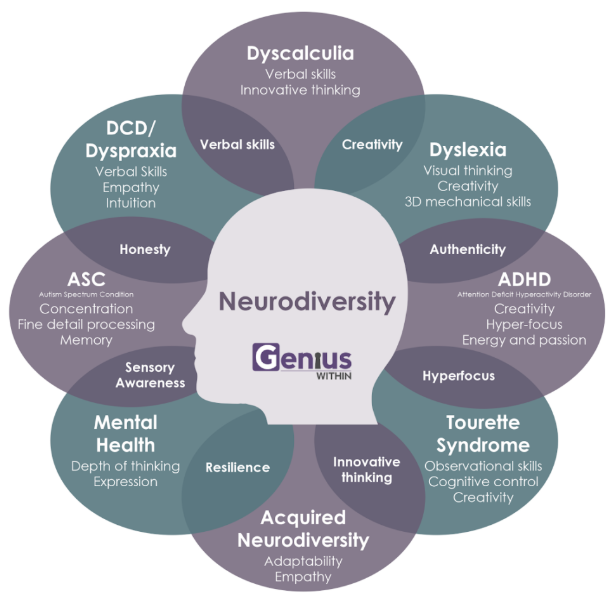This week is Neurodiversity Celebration week. Neurodiversity Celebration Week is a worldwide initiative that challenges stereotypes and misconceptions about neurological differences. It aims to transform how neurodivergent individuals are perceived and supported, to recognise the many skills and talents of neurodivergent individuals, while creating more inclusive cultures that celebrate differences and empower every individual.
What does Neurodiversity mean?
As Lenni shared in assembly “neuro means brain and diversity means different”. Therefore, Neurodiversity means a brain that thinks differently. I shared the following short videos with the children in assembly this week which you may find useful
Did you know?
-
No two people are the same and so we will all have different profiles.
-
Although we talk about specific neurodifferences such as Autism and Dyslexia, the reality is that these can co-occur.
-
Every neurodivergent individual has a unique pattern of strengths and challenges.
-
We tend to operate on an approach to diagnosis and labels which can mean that quite often the focus is on the challenges rather than the many strengths and talents of neurodivergent individuals.
-
It is important to harness the strengths and talents of neurodivergent individuals, this helps to build confidence and self-esteem, and ensures individuals are given the opportunity to flourish in their day-to-day.
What did we do to celebrate Neurodiversity Week?
A group of children in Key Stage 2 led the assemblies during the week sharing their own experiences of having diagnosed Neurodiversity. They shared their strengths of being neurodiverse as well as some of the challenges they face having a brain that thinks differently. As a school we shared how we can build acceptance and appreciation of difference and most importantly… to be kind. We discovered some famous faces that have a diagnosed Neurodiversity and learnt about their stories and strengths which led to their success today.
I am so proud of the inclusive culture we have created here at Minchinhampton, we currently have 22 children (and some adults) with a confirmed diagnosis of Neurodiversity with many more waiting for assessments to help them understand how and why their brain works differently and more crucially, find the right strategies to help them flourish and succeed in school and through life. The world is a much brighter and more interesting place to live, with wonderfully wired brains that think differently. Each individual having their role and value within the community.
If you would like to find out more about Neurodiversity please visit Neurodiversity Celebration Week where there are also resources for parents and webinars from last year’s events. If you sign up for free, you can also access the webinars and online events happening this week.
Mrs Kingscote


